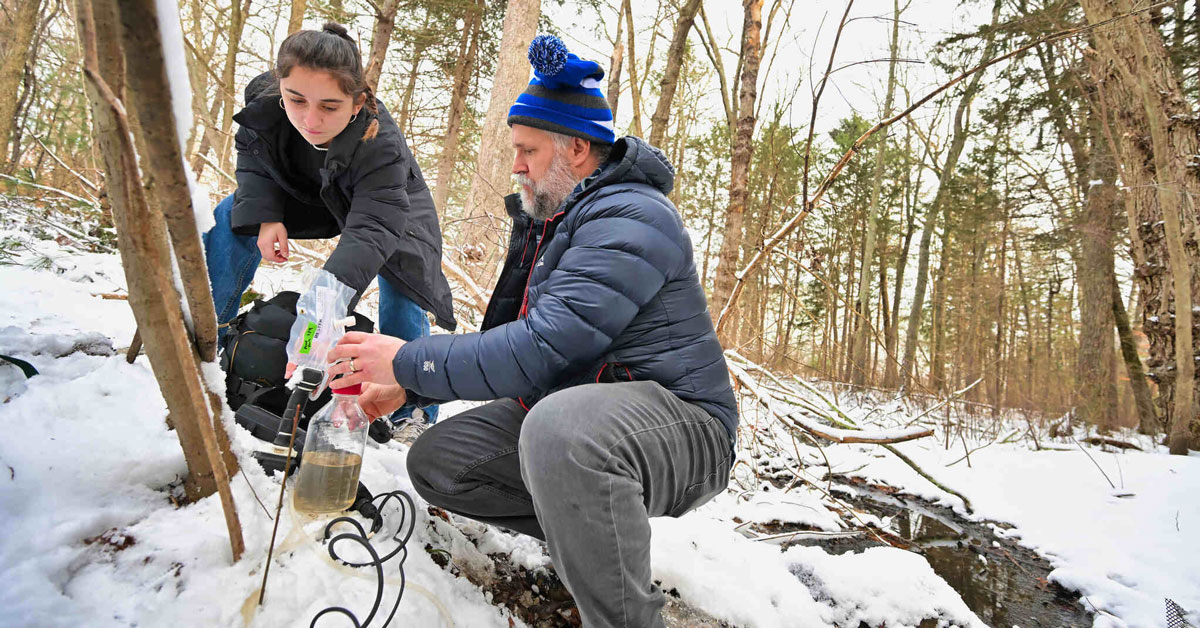Macey Poitras-Cote ’25 works with professor on vernal pool research

Standing on snow-covered ground near the entrance of Wheaton Woods one January morning, Macey Poitras-Cote ’25 and Professor of Chemistry and Geology Matthew Evans worked together to collect water and gas samples from a vernal pool.
Professor Evans has been researching the chemistry of vernal pools for years to develop a better understanding of the impact of the combined pressures of development and climate change. Poitras-Cote has been helping him, including during her recent three-week funded wintership.
“My main responsibility was to go out to our sites and collect gas samples from the pools. I enjoyed going out in the field and spending some time being outside in nature,” said Poitras-Cote, who also analyzed data.
During winter break, Wheaton students engage in experiential learning opportunities that are funded through a variety of sources that fulfill the Wheaton Edge promise to support students undertaking internships, research and volunteer work.
Poitras-Cote’s interest in Evans’s work began sophomore year when he became her advisor.
“In various advising meetings I had asked about what research he is involved in, and once he told me I knew I wanted to be a part of his team,” said Poitras-Cote, who is majoring in environmental science with a concentration in chemistry. “What really drew me in was the aspect that there was a lot to look at and take away with the data collected.”
Vernal pools are small seasonal bodies of water formed from melting snow or rainfall. Evans has been looking at how much carbon dioxide and methane gas is being released from the pools and how gas fluxes change over time. Carbon dioxide and methane can affect the environment, including air quality, and are two important greenhouse gases.
“The most beneficial thing I learned during this experience was how to be confident with my decisions and problem solving,” Poitras-Cote said. “I have done research with Professor Evans for a year now, but this opportunity was different in the fact that I had to do it independently. When I was the only one in the lab and out in the field, I had to deal with any issues that came up.”
“The Compass curriculum has helped me with this opportunity because without it I would not have the skills and knowledge that have contributed to my success during this experience,” she said.
Poitras-Cote’s “Chemistry of Natural Waters” and “Ecology and Conservation Biology” courses have been particularly helpful. In the former, she had to collect gas samples in the lab in a way similar to the method required for the research work. The latter set her up for successfully organizing and analyzing data using Excel.
Noting that a degree in environmental science will provide her with many career options, Poitras-Cote said the winternship “helped solidify the fact I want to be doing hands-on lab work in the future as well as fieldwork.”
Evans shares her enthusiasm for the value of winternships. “It is encouraging that funding to support programs like the winternships is starting to become more available for our students. Being able to take part in research during semester and summer breaks is such a great opportunity,” he said.
